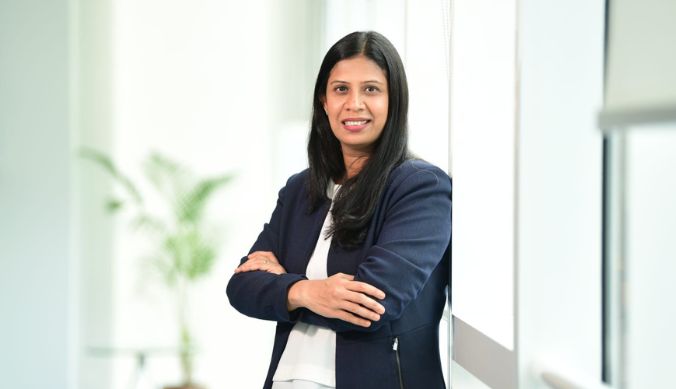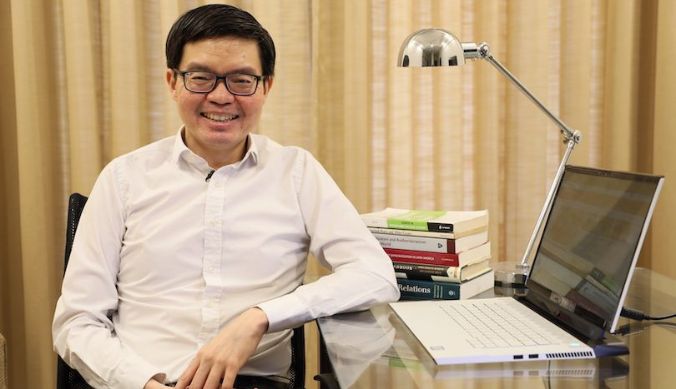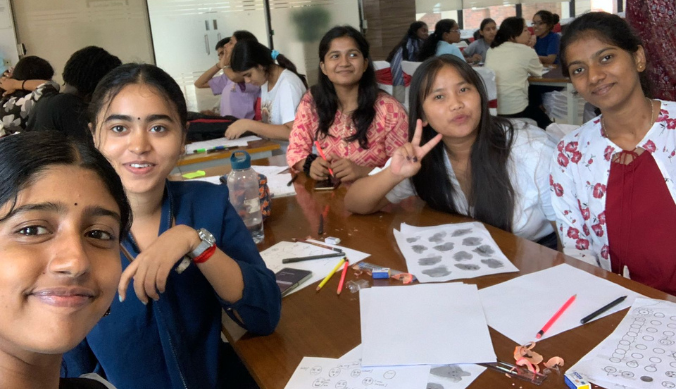Accelerating Innovation & Growth for the Future
Collaborations between academia and industry equip students with the requisite skills and knowledge, empowering them to seamlessly transition into the workforce.
The future of work is characterised by rapid technological advancements, demographic shifts, and evolving business models. To thrive in this dynamic landscape, a workforce that is adaptable, skilled, and innovative is paramount. Academia-industry collaborations play a crucial role in preparing individuals for the challenges and opportunities that lie ahead. By providing access to cutting-edge research, practical experience, and industry insights, these collaborations ensure that individuals are equipped to navigate the complexities of the future workforce successfully.
Bridging the Skills Gap to Boost Employability
One of the paramount contributions of academia-industry collaborations lies in bridging the skills gap. As industries evolve at an unprecedented pace, the demand for a skilled workforce continues to escalate. Academic institutions, however, often struggle to keep pace with the ever-changing demands of the industry. Collaborations between academia and industry ensure that educational programs remain relevant and aligned with the current and future needs of the workforce. This alignment equips students with the requisite skills and knowledge, empowering them to seamlessly transition into the workforce.
The integration of industry insights into educational programs enriches the learning experience for students. Guest lectures and internships provide students with firsthand exposure to industry practices and real-world challenges. This practical experience not only enhances their understanding of theoretical concepts but also instils crucial skills such as problem-solving, critical thinking, and adaptability. Additionally, collaborations with industry professionals enrich educational curricula, ensuring that graduates are well-prepared to meet the evolving demands of the job market. As the needs of industries are evolving and they navigate a rapidly changing business landscape, there is a growing recognition of the need for advanced skills and specialized knowledge. The increased demand for freshers with diverse degrees showcases a progressive mindset, acknowledging the value of a well-rounded skill set in fostering innovation and adaptability. Industries are increasingly realising that a diverse talent pool, comprising both traditional engineering graduates and those with a broader educational background in liberal arts and core science subjects, contributes to a more resilient and versatile workforce. This demand can surely be met by the expectations of youth seeking internships to kick-start their careers in the coming year. As per Wheebox India Skills Report 2024, 87.83% of students look forward to internship experiences to move forward in their careers.

These collaborations play a pivotal role in fostering a growth mindset among students and professionals alike. By exposing students to real-world challenges and industry practices, these collaborations encourage a proactive approach to learning and problem-solving. Students learn to embrace challenges as opportunities for growth, cultivating resilience and adaptability—qualities essential for navigating the complexities of the modern workforce.
Engagement with academia has undergone a significant shift, with collaborations now initiated as early as the first year of graduation. Various activities such as hackathons, college fests, and new-age formats like sponsoring freshers’ days and tech fests serve as platforms for early engagement between academia and industry. These initiatives not only provide students with exposure to industry practices but also foster innovation and creativity from the outset of their academic journey.
Driving Innovation and Research to Create a Better World
Collaboration between academia and industry cultivates an environment conducive to innovation and research. This creates a virtuous cycle with academic institutions offering knowledge and research capabilities, and industries offering practical insights and resources. By synergising their strengths, academia and industry can push the boundaries of innovation, resulting in groundbreaking discoveries and technological advancements. Joint research initiatives and industry-sponsored projects serve as conduits for fostering innovation, thereby driving economic growth and societal progress.
SAP and Academia
SAP has been at the forefront of fostering collaborations between academia and industry, recognising the importance of early engagement and ongoing partnerships in shaping the future of work. Through initiatives like the REACH program, SAP has transformed the landscape of engagement with academia through activities such as SAP Experience Day, Industry Visits, Bootcamps in College Premises, Hackathons, Mini Research Projects and more providing platforms for meaningful interactions between students and industry professionals, fostering innovation and skill development from the outset of students’ academic journeys. The engagement also ensures that members of the faculty are also getting a heads up about our offerings thereby being multipliers for us.
Moreover, SAP’s AI Foundation program offers students unique opportunities to engage with cutting-edge technologies where our participants dive deep into the world of GenAI, mastering key concepts and techniques to build innovative solutions. From delving into LLMs to integrating state-of-the-art techniques into SAP’s AI products, each project showcased incredible creativity and technical prowess and industry experts. Through collaborations with prestigious institutions like IIM, ISB and IIITB, and platforms like upGrad and Emeritus, employees gain invaluable insights and practical experience in the field of artificial intelligence, preparing them for the demands of the future workforce.
Our SAP Internship Experience Programs ( SAP iXP), offer internships from 2 to 10 months for graduates and postgraduate students. The tailored virtual and in-person events led by the SAP iXp Global Team, provide access to online and offline, synchronous and asynchronous, learning offerings that boost their knowledge. Interns step into dynamic teams and work on projects where cross-collaboration, creativity, and learning abound. They also run campaigns, develop the latest technologies and products, participate in social and networking events and meet and learn from senior business executives from around the world.
Collaboration through Academic Case Studies: Since 2020, SAP Labs India has undergone significant transformations, including the transition to remote work at the onset of the pandemic and the subsequent adoption of a hybrid working model. Through meticulous planning and concerted efforts, SAP Labs India has successfully navigated these transitions, ensuring minimal disruption to operations while prioritising the well-being of its 12,000+ employees.
A case study, co-authored with XLRI and published by Harvard Business School, documents SAP Labs India’s concept of “Pledge to Flex”. It was presented at XLRI, engaging students and faculty members on the importance of Change Management in organisational success. It serves as a resource for organisations navigating similar challenges, providing practical strategies and best practices for managing change effectively.
Furthermore, SAP’s Vocational Training/ STAR model in collaboration with BITS- Pilani, WILP Program offers students a unique opportunity to blend academic learning with practical experience. Under the programme, students spend weekdays working on real-world projects at SAP and weekends pursuing their M.Tech degree with BITS Pilani. This dual mode of learning equips them with a comprehensive education that prepares them for leadership roles in the industry. With a focus on continuous learning and growth, the WILP program empowers students to thrive in the dynamic landscape of the digital era, driving innovation and shaping the future of work.
(Written by Shweta Mohanty, Vice-President, Head of Human Resources, SAP in India)
Study at Ashoka













